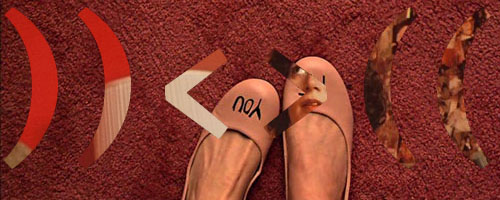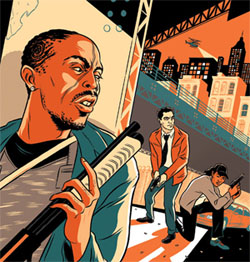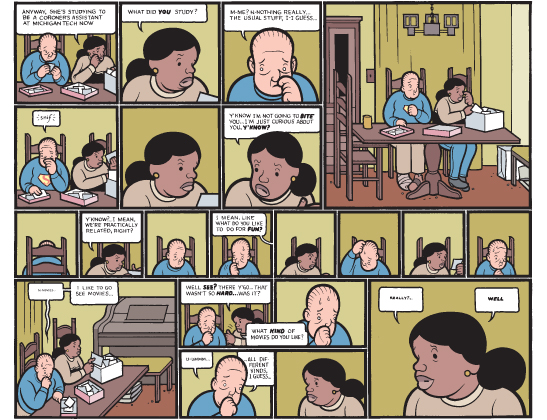
It's clear that CLOUD ATLAS was very difficult to make. Telling 6 stories at once, in 6 different genres, with a repeating ensemble cast should be a nightmare if you want to do it well. Indeed, the only thing everyone seems to agree on in all the reactions to this film is that it's ambitious. But the thing I can't figure out is if there's anything else. I can't tell if this is a difficult to unpack because its depth is hidden so well, or difficult to unpack because there is no secret compartment. It's just empty.
Remarkably, no one seems to be calling it "pretentious," which is a tag that seems to follow every film that aspires to be important. Part of the reason for that is, despite the interlocking stories, it's kind of a simple film. Individually, the stories (ranging from a seafaring slavery play to a post-apocalyptic journey) are so one dimensional and simple by necessity. They're slider burgers. Nothing fancy, because they want you to eat a lot of them. Taken together, I can appreciate the tapestry and work, but it doesn't seem to add up to much more than a 3 hour rumination on the interconnection of lives.
At the same time, that seems like the wrong assessment. The sheer scope and ambition keeps insisting to viewers that there's a lot more to this work, like something with such a degree of difficulty couldn't be so flat and empty, there must be some threads you have to unravel. How you confront the challenge, or the illusion of the challenge, will determine how you receive the film. You will rub up against its complexity and see the tip of the iceberg, as Roger Ebert does, or you will take a step back and see a big stupid ice cube, as Pajiba's Daniel Carlson does. When confronted with the question of whether a piece of art has depth, we tend to look at the credibility of the people behind it. It's hard for me to go this route, as the Wachowskis seem to straddle the line. They often seem to possess great ideas, but execute them in annoying or clumsy ways.







